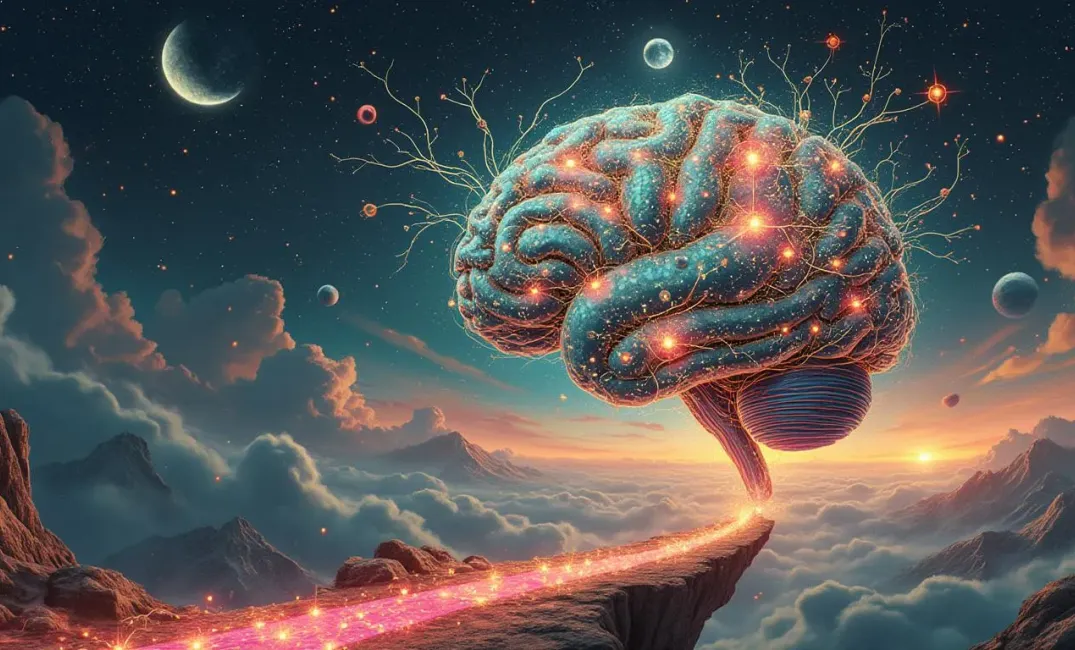Introduction: The Ode to Memory
"Memory is the treasure house of the mind wherein the monuments thereof are kept and preserved." — Thomas Fuller
Memory, a cornerstone of human experience, is integral in shaping identity, culture, and societal evolution. It interweaves past experiences with present perceptions, influencing decisions and aspirations for the future. This exploration delves into memory's role as a dynamic symphony, resonating across individual and collective consciousness, crafting narratives that define, transform, and perpetuate humanity's journey.
The Biological Foundation of Memory
Neurological Mechanisms
- Neural Plasticity: Memory resides within neuronal networks, exhibiting plasticity that allows for learning and adaptation. It involves processes such as long-term potentiation, which strengthens synaptic connections for memory retention.
- Types of Memory: Different brain regions facilitate varied memory types, including the hippocampus for episodic memory, prefrontal cortex for working memory, and amygdala for emotional memory, each contributing to complex memory landscapes.
Memory Retrieval and Encoding
- Encoding: The process of encoding condenses sensory information into durable mental representations, a fundamental step in memory retention and recollection.
- Retrieval Cues: Memory retrieval relies on cues that trigger the recall of stored information, often influenced by context and association, shaping how memories are accessed and interpreted.
Memory's Cultural Resonance
Collective Memory and Society
- Cultural Identity: Collective memory enriches cultural identity by preserving shared experiences and narratives, from folklore to history, crafting a sense of continuity and belonging.
- Commemorations and Rituals: Societies use commemorations and rituals to remember significant events, solidifying collective memory, reinforcing values, and fostering social cohesion.
Memory in Art and Literature
- Artistic Expression: Artists and writers capture and reinterpret memory through their works, evoking emotional connections and challenging audiences to reflect on personal and shared histories.
- Narratives and Time: Literature often explores memory's fluidity, juxtaposing past and present, and evoking introspection on identity, purpose, and the human condition through storytelling.
Memory's Role in Shaping Identity
Personal Memory and Identity Formation
- Autobiographical Memory: Personal memories contribute to a coherent sense of self, shaping individual identity through recollection of life experiences, milestones, and evolving self-perception.
- Emotional Memories: Emotionally charged memories significantly impact self-identity and decision-making, fostering resilience and shaping personality traits.
Intergenerational Memory and Legacy
- Oral Traditions: Oral traditions transmit memory across generations, ensuring cultural continuity and imparting wisdom, values, and social norms to future generations.
- Inherited Memory: Epigenetic studies suggest memories and experiences might influence descendants through genetic expression, underscoring the complex interplay between memory and biology in shaping identity.
The Technological Influence on Memory
Digital Memory and Modern Accumulation
- Digital Archives: The internet and digital technologies enable unprecedented accumulation and access to information, redefining how societies store and retrieve collective memory.
- Social Media and Memory: Platforms like social media influence memory construction and expression, altering perception of identity, friendship, and personal history through curated digital biographies.
Memory Preservation in the Digital Age
- Digital Amnesia: Reliance on digital tools can lead to digital amnesia, where dependence on technology weakens natural memory retention and retrieval, posing challenges to cognitive engagement.
- Archival Efforts: Digitizing cultural heritage and records ensures the preservation of memories for future generations, highlighting the ethical and logistical challenges in maintaining and curating digital archives.
Challenges and Opportunities in Memory Research
Memory's Malleability and Distortion
- Cognitive Biases: Memory is susceptible to biases and distortions, with recollections often reshaped by emotions, group narratives, and selective attention, impacting its accuracy and reliability.
- Reconstructive Nature: Memory's reconstructive nature allows for reinterpretations that either reinforce or alter narratives, influencing both personal identity and collective histories.
Ethical Dimensions of Memory Manipulation
- Therapeutic Interventions: Advances in neuroscience offer therapeutic interventions to alter traumatic memories, introducing ethical considerations about consent and authenticity.
- Memory Enhancement and Erasure: Techniques for enhancing or erasing memories raise profound ethical questions about the implications for identity, autonomy, and societal norms.
Conclusion: An Ode to Memory's Transformative Power
"Memory is the mother of all wisdom." — Aeschylus
Memory, through its enduring symphony, transcends time, bridging past, present, and future in an intricate dance of identity and existence. It is a testament to humanity's resilience, creativity, and capacity for renewal, preserving wisdom while inspiring exploration of the new and unknown.
As technology evolves, the relationship between memory and identity adapts, redefining how societies remember, learn, and progress. While grappling with challenges such as digital amnesia and ethical considerations, efforts to preserve and honor memory underpin a commitment to understanding and wisdom.
As humanity sails through the cosmos, memory will remain an anchor, guiding collective consciousness toward futures painted with vibrant stories and shared aspirations. Memory's transformative power, as the foundation of personal and cultural identity, promises to richly inform humanity's ongoing journey, illuminating an expansive universe of potential and discovery.
DIGITAL AGE, MEMORY, NEUROSCIENCE, CULTURE, IDENTITY, ETHICS, HISTORY

